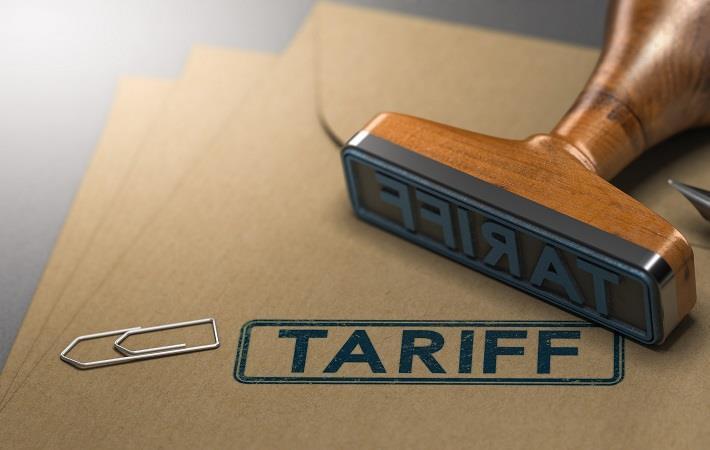Interviews
India turns down proposal for permanent tariff cuts at WTO
19 May '20
3 min read

Pic: Shutterstock
India recently turned down a proposal by some World Trade Organisation (WTO) members, mostly rich, for permanent tariff concessions on health and farm products as an answer to trade disruptions caused by COVID-19, arguing that the proposal may be a ploy to gain additional market access and developing countries need to continue protecting their nascent industries.
“...The narrative-push by some WTO members to seek permanent tariff liberalisation on a range of products in response to a temporary crisis appears to be a thinly veiled bid to use the crisis as an opportunity to gain market access for their exporters,” Indian media reported quoting the country’s statement at a recent meeting of the WTO’s General Council to exchange views on the economic and trade impact of the pandemic.
Australia, New Zealand, Singapore, Canada, Chile and Brunei had come up with a joint statement a few weeks earlier against the imposition of export controls, or tariff and non-tariff barriers. They also opposed the removing of any existing trade restrictive measures on essential goods, especially medical supplies, amid the battle against COVID-19.
“Developing countries seeking to shore up manufacturing capacity in medical products will require tariff protection for their nascent domestic industry. Further, job losses in many service sectors have to be compensated elsewhere. Therefore, India, like many other developing countries, cannot agree to permanent tariff concessions, and a dilution of the tariff bindings that we have paid for in the Uruguay Round,” said India’s statement.
Members are free to reduce customs duties on import of certain medical or agricultural products to zero if it serves their health and food security objectives, but it has to be on a voluntary basis, it said.
In formulating a response to the COVID-19 disruptions, it is critical to bear in mind that the impact of the pandemic will be felt unevenly, though widely, the statement pointed out. “The strain on economic, food and livelihood security will disproportionately impact developing countries and LDCs (least developed countries) with large populations and limited resources. Therefore, they need special treatment,” India said.
However, India also acknowledges the importance of coordinating the global response to avoid disruptions in the flow of vital medical supplies, food and other goods and services across borders, and has been playing a proactive role in ensuring the availability of vital drugs such as hydroxychloroquine and paracetamol across the globe, the statement added.
“...The narrative-push by some WTO members to seek permanent tariff liberalisation on a range of products in response to a temporary crisis appears to be a thinly veiled bid to use the crisis as an opportunity to gain market access for their exporters,” Indian media reported quoting the country’s statement at a recent meeting of the WTO’s General Council to exchange views on the economic and trade impact of the pandemic.
Australia, New Zealand, Singapore, Canada, Chile and Brunei had come up with a joint statement a few weeks earlier against the imposition of export controls, or tariff and non-tariff barriers. They also opposed the removing of any existing trade restrictive measures on essential goods, especially medical supplies, amid the battle against COVID-19.
“Developing countries seeking to shore up manufacturing capacity in medical products will require tariff protection for their nascent domestic industry. Further, job losses in many service sectors have to be compensated elsewhere. Therefore, India, like many other developing countries, cannot agree to permanent tariff concessions, and a dilution of the tariff bindings that we have paid for in the Uruguay Round,” said India’s statement.
Members are free to reduce customs duties on import of certain medical or agricultural products to zero if it serves their health and food security objectives, but it has to be on a voluntary basis, it said.
In formulating a response to the COVID-19 disruptions, it is critical to bear in mind that the impact of the pandemic will be felt unevenly, though widely, the statement pointed out. “The strain on economic, food and livelihood security will disproportionately impact developing countries and LDCs (least developed countries) with large populations and limited resources. Therefore, they need special treatment,” India said.
However, India also acknowledges the importance of coordinating the global response to avoid disruptions in the flow of vital medical supplies, food and other goods and services across borders, and has been playing a proactive role in ensuring the availability of vital drugs such as hydroxychloroquine and paracetamol across the globe, the statement added.
Fibre2Fashion News Desk (DS)
Popular News
Leave your Comments
Editor’s Pick
































-Ltd..jpg?tr=w-120,h-60,c-at_max,cm-pad_resize,bg-ffffff)





.jpg?tr=w-120,h-60,c-at_max,cm-pad_resize,bg-ffffff)
.jpg?tr=w-120,h-60,c-at_max,cm-pad_resize,bg-ffffff)






